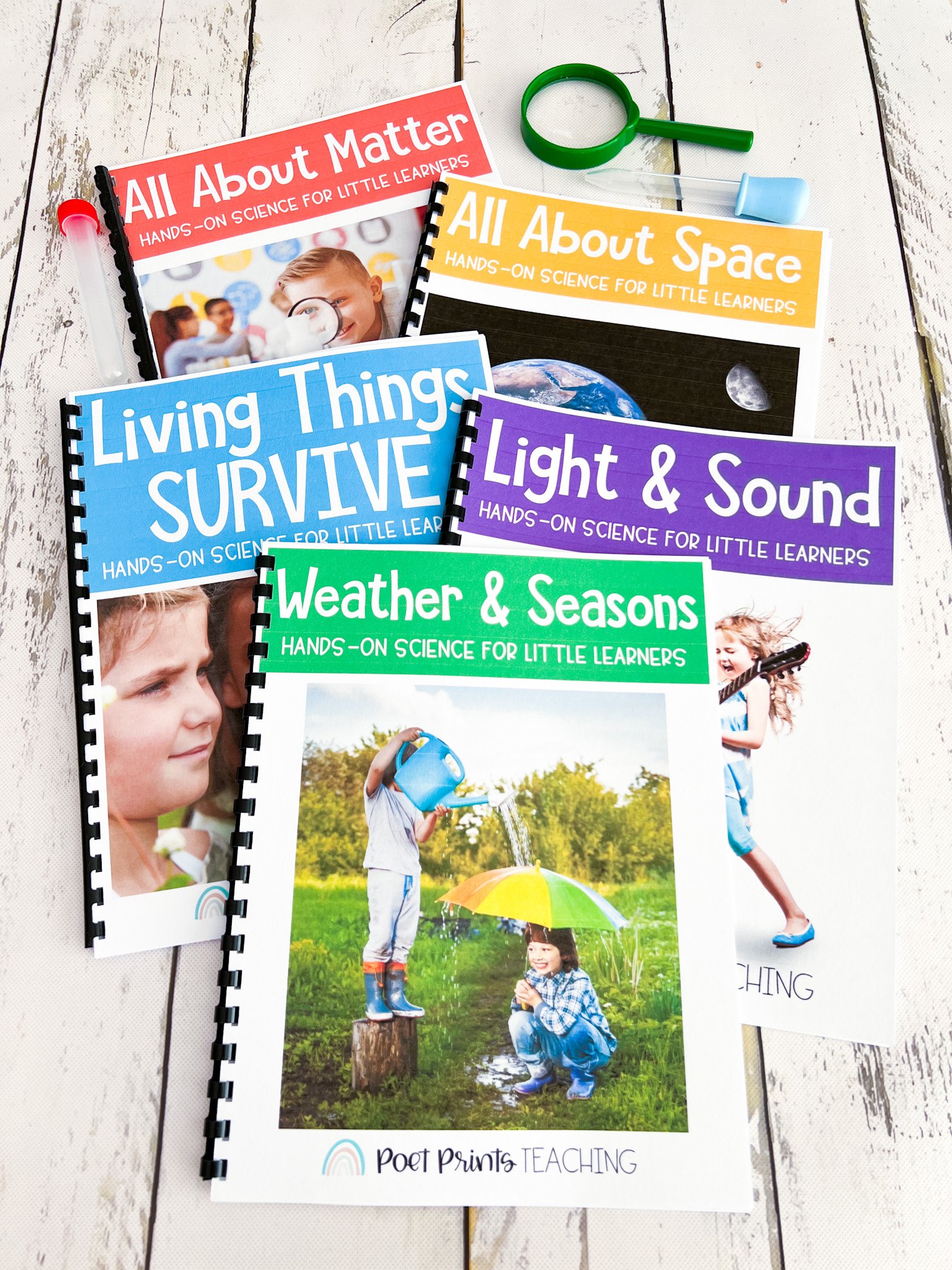Grade 1 Science Activities, Experiments, and Ideas
Albert Einstein once said, “The important thing is not to stop questioning. Curiosity has its own reason for existing.” And I find that curiosity abounds among First Graders. The science curriculum in Grade One naturally makes students curious about things around them. Take a look at my favorite experiments and ideas for making the first grade science curriculum come alive.
WHAT ARE THE TOPICS IN GRADE 1 SCIENCE?
Here in BC, our science curriculum is guided by the BC Big Ideas. The BC Big Ideas for Grade 1 Science are…
Living things have features and behaviors that help them survive in their environment
Matter is useful because of its properties
Light and sound can be produced and their and their properties can be changed
Observable patterns and cycles occur in the local sky and landscape
When teaching these big ideas, I generally break it down into 6 distinct topics: Space, Matter and Materials, Light and Sound, Animals, Weather, and Seasons.
So many of these topics also cross over with the NGSS and several other state-specific standards. These ideas will work well in any classroom with little scientists!
Everything You Need to Teach Grade 1 Science
A complete (scripted) unit for every single grade 1 science unit in BC. Lesson plans, vocabulary, projects, experiments, activities, and more!
Click and print. Planning is really that easy.
Teaching About the Weather
Weather is the perfect topic for younger students because it is all around them! They can understand the concept of sun, clouds, rain, and snow (in some parts of the world) because they have personally experienced these things.
There are some fabulous activities for teaching the weather: keeping a weather journal, charting the weather, and exploring weather in other parts of the world. For even more hands-on (and potentially messy) learning, you can make shaving cream clouds or homemade rain gauge.
Check out this blog post to see details on these weather lessons and activities and more.
Lessons about Seasons and How They Change
Like with weather, seasons are something little learners experience regularly. Fall, Winter, Spring, and Summer can look unique in different communities, and it’s the perfect chance to explore where you are. Remember to keep the lessons simple, engaging, and interactive. Check out this blog post for ideas about videos to watch, reading passages to use, and activities to implement.
Planets in Our Solar System - Activities and Projects
Looking into the sky at night brings wonder and awe! Kids tend to have a lot of questions about space and the solar system. For fun ideas about teaching the solar system and space, click here. Some ideas include an art project about sunsets/sunrises, making straw rockets, watching videos about living on the International Space Station, and a game to teach the difference between an ‘orbit’ and a ‘rotation’.
learning about light and sound
There are many natural phenomena when it comes to light and sound: rainbows, stars, the sun, lightning, thunder, animal noises, music! Whether it’s watching YouTube videos, playing a game of “Guess the Sound”, hunting for noise and light sources, or doing experiments, there are plenty of ways to engage students while learning about sound and light. This blog is full of ideas for experiments and lessons that will engage your students.
Properties of Matter and Materials
If you’re looking for ways to teach about the properties of matter and materials to Grade One students, check out this blog post.
Some of my favorite matter and materials activities are included
Sorting the States of Matter (printable game)
Matter in My World printable project
The BEST YouTube videos
Hands-On Properties of Matter Stations
How do living things adapt and survive?
Animals and plants are fascinating topics for Little Learners, and keeping the focus on ‘animals’ is a high-interest way to teach about how living things survive and adapt. Try focusing in on a single animal to really help your students become adaptation and survival experts!
Grade One Science is full of wonder, excitement, curiosity, and…well….it can get messy with Little Learners. But, as Ms. Frizzle from Magic School Bus always says, “Take chances, make mistakes, and get messy.” So have some fun while teaching science to your Grade One students!








